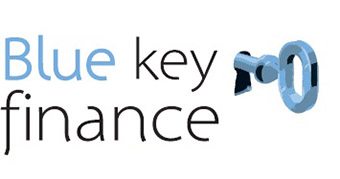Interest-only home loans
Decide whether an interest-only home loan is right for you.
You may be considering an interest-only home loan because of lower initial repayments. Check the pros and cons before going ahead. Make sure you can afford higher repayments at the end of the interest-only period.
If you already have a mortgage and are struggling with your repayments, this may be an option for you temporarily.
How interest-only home loans work
On an interest-only home loan, your repayments only cover interest on the amount borrowed (the principal). For a set period (for example, five years), you pay nothing off the amount borrowed, so it doesn’t reduce.
At the end of the interest-only period, the loan will change to a ‘principal and interest’ loan. You’ll start repaying the amount borrowed, as well as interest on that amount. That means higher repayments.
Pros and cons of an interest-only loan
Pros
- Lower repayments during the interest-only period could help you save more or pay off other more expensive debts.
- May be useful for short-term loans, such as bridging finance or a construction loan.
- If you’re an investor, you could claim higher tax deductions from an investment property
Cons
- The interest rate could be higher than on a principal and interest loan. So, you pay more over the life of the loan.
- You pay nothing off the principal during the interest-only period, so the amount borrowed doesn’t reduce.
- Your repayments will increase after the interest-only period, which may not be affordable.
- If your property doesn’t increase in value during the interest-only period, you won’t build up any equity. This can put you at risk if there’s a market downturn, or your circumstances change and you want to sell.
Calculate your repayments after the interest-only period
Work out how much your repayments will be at the end of the interest-only period. Make sure you can afford the higher repayments.
Give yourself some breathing room. If interest rates rise, your loan repayments could go up even more.
Work out your repayments before and after the interest-only period.
Managing the switch from interest-only to principal and interest
It can be a shock when the interest-only period ends and your repayments go up. Ensure you have a savings buffer, do a comprehensive budget prior to the interest-only period expiring, and speak to us to ensure you’re on the best home loan product for your current needs.
Gradually increase your loan repayments
If your loan lets you make extra repayments, work up to making higher repayments before the switch. Getting into a good habit now will prepare you well into the future.
Get a better deal on your loan
You may be able to get a better interest rate with your current lender. Speak to us and we can see what we can do for you with your current lender and also to compare with what’s on the market for a refinance opportunity.
Most times, we save our clients around $2,500 a year by refinancing.
Talk to us
If you’re worried you can’t afford the new repayments, talk to us to discuss your options. You may be able change the terms of your loan, or temporarily pause or reduce your repayments.




Leave a Reply
Want to join the discussion?Feel free to contribute!